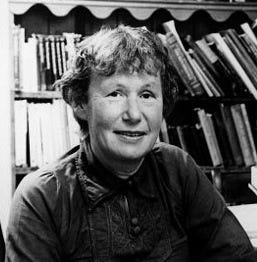Books for a Very Long Journey XIV
The British romantic, the Indian mystical, the Argentine surreal, the French fantastic, the Greek mythic, the Japanese exquisite, the Iberian tragicomic...
[I realized last week that I have not posted one of these lists in some time. I suppose this is because I ended up devoting ten postings to my Reflections on Life and Mind, but I cannot help feeling I have been guilty of a certain dereliction of duty. I mean, surely I have no greater mission in life than to force my taste in books on anyone patient enough to let me do so. So here is my latest florilegium in digest form.]
151. Penelope Fitzgerald, The Gate of Angels: Last year, at the prompting of the wise and wily Salley Vickers, I read all of Penelope Fitzgerald’s novels, both those I had previously read and those I had not. It did not take much time, in part because there are only nine of them and none is very long, but also because all of them are very hard to stop reading. Fitzgerald really was brilliant, and certainly as great a virtuosa at the art of the English novel as any writer of the twentieth century; in all her fiction, everything is in perfect balance, witty and subtle and precise, but also entirely unpredictable. Before returning to her books, my favorite—as far as I could recall—was her last, The Blue Flower, a fictional narrative of seven crucial years in the life of Novalis. Now, however, I have decided that it is this, her penultimate novel that I enjoy most. It is an altogether flawless feat of storytelling, one that on my second reading put me in mind at once of Jane Austen, Noël Coward (in an odd way), and Ernst Lubitsch. Set in Cambridge in 1912, it tells the story of an unlikely romance between a young physicist named Fred Fairly who is a fellow at the fictional college of St Angelicus and a more or less penniless working-class girl from London named Daisy Saunders who is trying to become a nurse. The two of them become involved by chance (or so it seems), in part because Daisy wears a wedding ring despite having no husband so as to discourage the amorous advances and wandering hands of young men. Fred is bicycling into town one evening when a cart-driver backs out in front of him and sends him careening into Daisy, who is out walking in the lane, and both are rendered unconscious; when they are taken into a nearby house by a professor’s wife, Daisy’s ring leads their hostess to assume that they are a young married couple, and so she has them installed in the same bed; and Fred no sooner wakens than he becomes smitten with Daisy. I will give away no more of the plot than that. I will merely mention that, set as it is in the period of nascent quantum mechanics, the book plays beautifully with themes of chance and destiny, indeterminacy and inevitability. There is even something of a ghost story that plays an important part in the plot. And all of it culminates in a sudden, ingenious resolution, as inevitable as it is unexpected. It really is a wonderful book.
Keep reading with a 7-day free trial
Subscribe to Leaves in the Wind to keep reading this post and get 7 days of free access to the full post archives.




